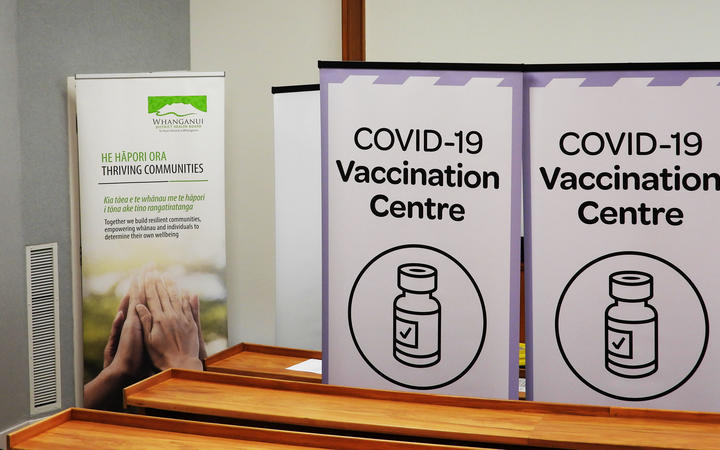Whanganui District Health Board (DHB) is considering earlier vaccination for Māori over the age of 50 in the third tier of the Covid-19 vaccine rollout starting in May.

Photo: Supplied via LDR
Tier 3 of the sequencing framework is for people at risk of getting very sick from Covid-19, including disabled people, pregnant women, people with underlying health conditions, those living in custodial settings and those over the age of 65.
In light of the Northland District Health Board decision to vaccinate everyone over the age of 50, Whanganui DHB chief executive Russell Simpson said Whanganui is re-thinking Tier 3 vaccination criteria for Māori.
He said Whanganui DHB has focused on pro-equity as a key strategic imperative to reduce disparities in health, particularly between Māori and non-Māori.
“As part of this process we’re looking at reconsidering the vaccination age for Māori,” he said. “Vaccinations for Māori over the age of 50 are being considered by the vaccination team when we move to the Tier 3 process.”
He said the start date for Tier 3 vaccinations depends on the national rollout and local completion of the Tier 2 programme.
Whanganui DHB is wrapping up Tier 2 vaccinations for health workers, people in aged-care facilities and those being supported at home by carers. Next week, nurses at Whanganui Prison will be supported to vaccinate Corrections staff.
In Tier 4, the rest of the population will be offered vaccinations from July.
Simpson said the DHB was pleased with the number of health workers who have applied to be vaccinators, but staff numbers would need to be boosted when a large Whanganui vaccination facility is opened.
“We have further applicants to follow up,” he said.
The DHB is working on opening one large town-centre facility in Whanganui and other centres in rural and suburban areas such as Raetihi and Castlecliff. Pop-up facilities would operate in places such as Waiouru and the river communities, and there would be home-based vaccinations for people who are unable to leave their homes.
Simpson said the DHB was pleased with early uptake of Covid vaccinations by the health workforce across the district. It meant extra clinic slots were needed to meet demand to get as many health workers as possible vaccinated early on.
“The relationships we have across general practice, kaupapa Māori providers, primary and other community providers ensured that we had a good uptake of the vaccination in the initial few weeks of our roll-out.”
More than 1650 frontline health workers across the district have been vaccinated, including DHB, primary care, hospice, aged care, dentist and disability staff.
Simpson said no doses of the Covid-19 vaccine had been wasted so far, and vaccination teams were working to ensure this continues. There have been no local cases of severe allergic reaction (anaphylaxis) to the vaccine and only two mild adverse reactions, such as fainting.
Whanganui DHB will be running education sessions across the district, led by the National Immunisation Advisory Council to give information about the Covid-19 vaccine, including what is in the vaccine, how it is made, how it works and who is eligible for vaccination. The sessions will also cover the unknowns around the vaccine, the level of protection offered by the vaccine, how the travel bubble works, and procedures for special groups such as pregnant women or those on medication.

Local Democracy Reporting is a public interest news service supported by RNZ, the News Publishers’ Association and NZ On Air.